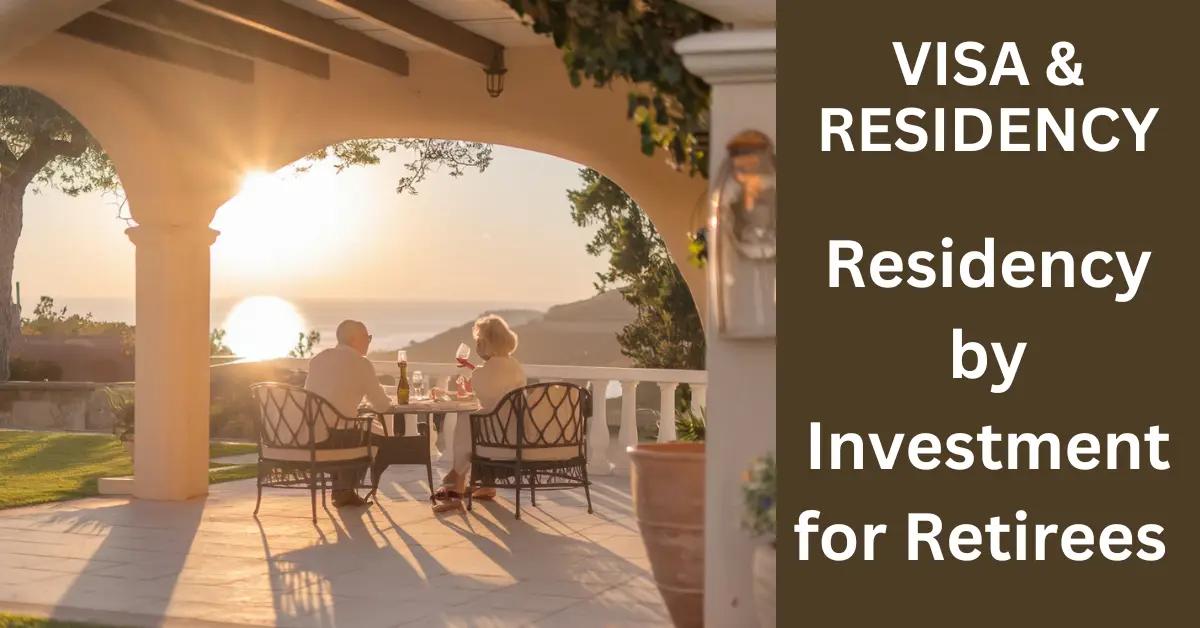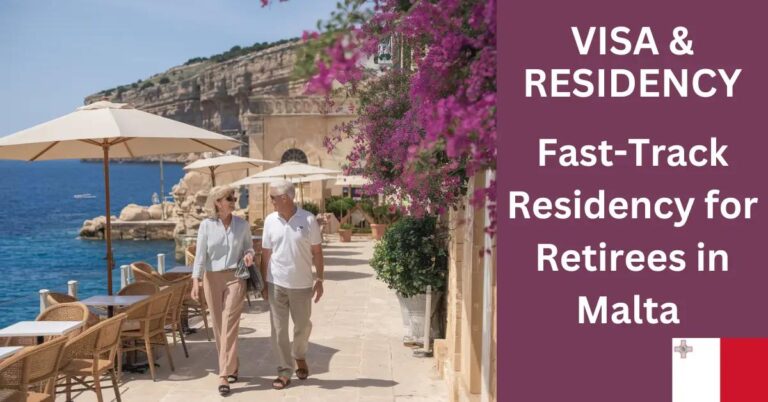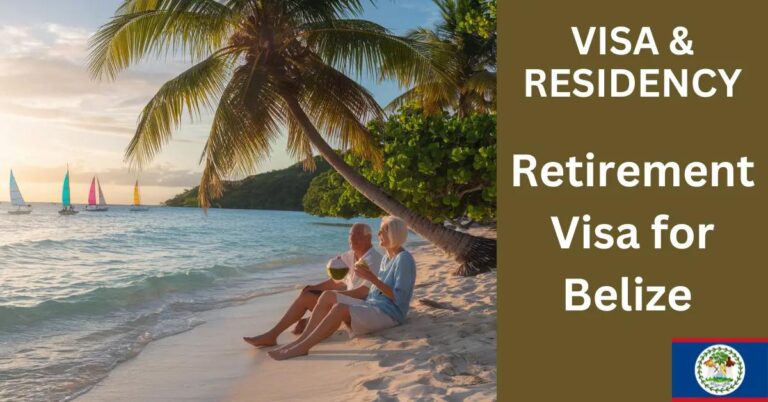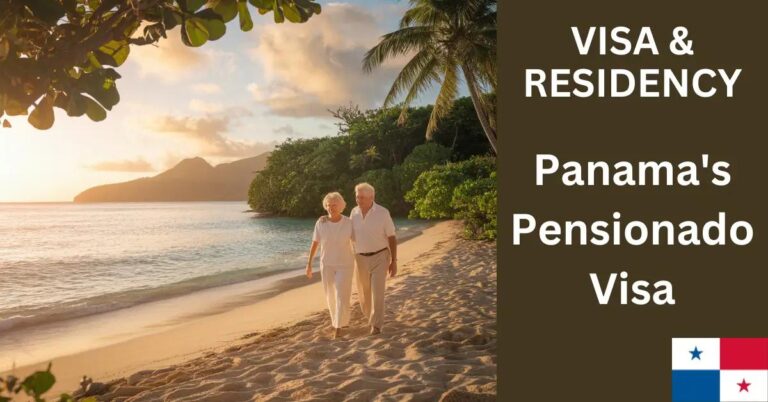TL;DR:
- Residency by investment lets retirees gain residency in another country by investing.
- Popular countries: Portugal, Spain, Greece, Malta, Panama, and Thailand.
- Investment options: Real estate, bonds, business ventures.
- Tax benefits and financial planning: Avoid double taxation, manage cross-border taxes, set up pension funds.
- Healthcare considerations: Public low-cost care (Spain/Portugal) vs. private high-quality care (Thailand/Mexico).
- Costs: Vary by country; Latvia is a cheaper European option with €250,000 real estate investment.
- Adaptation: Learn local language, engage in community events, and join expatriate networks for a fulfilling experience abroad.
Are you considering spending your golden years abroad? Residency by investment could be your key to unlocking a new life in a different corner of the world. This option allows retirees to gain permanent residency by investing in a foreign country's economy. But how exactly does it work, and is it the right choice for you? In this guide, we'll explore the ins and outs of residency programs across popular destinations, compare investment options, and reveal the true costs and benefits so you can make an informed decision. Dive in to discover how you can turn your retirement dreams into reality!
What is Residency by Investment for Retirees?
Residency by investment for retirees is a way to settle in another country. You invest money in a foreign country and receive residency status in return. This is popular with retirees who want a new life overseas. Programs differ by country, offering various routes to residency.
The purpose is to let retirees enjoy new places while benefiting the host country. Many countries create programs to invite investment in exchange for residency. These countries include Portugal, Spain, Greece, and others. Each country's requirements vary, so it's important to research thoroughly.
To get started, the application process for investment residency often needs proof of funds. Documents showing your investment and clean legal records are key prerequisites. The typical process might include applying, showcasing all documentation, and waiting for approval. You might have to travel to the country for certain formalities.
Benefits of these programs can include better quality of life and tax perks. They may also give easy access to other countries in the region. However, it's not all rosy; potential drawbacks exist. You can face hefty investment sums and strict legal conditions. Market changes can affect the value of your investment, too.
A strong understanding of the legal framework is crucial. Different countries may have unique rules, and knowing them helps avoid problems. Documentation needed can be extensive, like financial records and legal papers. It’s wise to hire legal help that specializes in residency programs for retirees.
Ultimately, purchasing property or business shares often completes these applications. Carefully consider your choice of country, and think about how the entire process aids your retirement dream. This investment is a serious commitment, but for many, it leads to a happy, fulfilling life abroad.
Which Countries Offer Retirement Visas?
Many countries welcome retirees seeking new experiences abroad. Popular choices include Portugal, Spain, and Panama. These countries offer retirement visas that provide a stable and welcoming environment for retirees. Portugal, for example, attracts retirees with its warm climate and vibrant culture. It offers a retirement visa called the D7 visa, which invites non-EU citizens to live in Portugal. Spain, known for its sunny beaches and rich history, also extends a Non-Lucrative Visa to retirees. This option allows them to live in Spain without working.
Panama is another excellent choice for retirees. It offers a special visa called the Pensionado Program. This program provides benefits such as discounts on healthcare and entertainment for retirees. Besides guiding you with clear aplomb relates to the attractive cost of living there. If you wish to explore further afield, Thailand provides a Retirement Visa option as well. Thailand’s natural beauty and affordable lifestyle appeal to many retirees.
European countries offer residency by investment opportunities. These include countries like Greece and Malta. Greece has a Golden Visa program that encourages retirees to invest in property there. Similarly, Malta offers a Residency by Investment program that includes favorable tax benefits. Each program has its own requirements and advantages, ensuring diverse options for retirees depending on their retirement goals.
When choosing a country for retirement, consider factors like lifestyle, health care, and climate. Portugal’s inviting weather and friendly locals make it a top choice for many. Panama's Pensionado Program offers excellent healthcare benefits to ensure retirees feel cared for. In contrast, European residency by investment programs offer stability and security.
Deciding on a retirement destination depends on personal preferences and lifestyle needs. It's important to evaluate what each country offers to find the best fit for a fulfilling retirement.
What are the Investment Options for Retirees?
When thinking about investing for retirement, it's important to consider safe options. Many retirees choose investments like real estate, bonds, and business ventures. These can offer both security and the chance for profit.
What investment is appropriate for retirees? Real estate is a popular choice. It can provide stable returns and long-term value. Many retirees buy property in a country where they want to live. It can be a home and an asset that grows over time. Recent trends show that expatriate retirees are increasingly investing abroad. They find cheaper markets or seek a lifestyle change.
Another option is bonds. Bonds are safer than other investments. They pay interest regularly and have lower risk. Countries sometimes offer special bonds for retired investors. These can be good if security is your priority.
Business ventures can be exciting but risky. Starting or buying a business abroad needs careful thought. You should understand the market and any legal rules in place. These investments may offer higher returns, but you must weigh the risks.
Each type of investment comes with unique risks and benefits. Real estate markets can fluctuate, affecting property value. With bonds, interest rates might change, affecting returns. Business ventures might face competition or economic changes.
Evaluating which option suits your needs is vital. Think about your risk tolerance and the lifestyle you want. Being informed is the first step to secure and profitable investments.
Also, seek advice from experts who understand international markets. They can help navigate unfamiliar rules and opportunities. Investment options for retirees are diverse and require thoughtful decisions. Every choice should reflect your financial goals and retirement plans.
How do Tax Benefits and Financial Planning Affect Retirees?
Have you ever wondered how tax benefits and financial planning can make life easier? Let's explore how these work for retirees moving abroad.
How much money do I need to invest to get permanent residency in the USA? Typically, you'll need $800,000 or more to invest in an approved business. The EB-5 Visa program allows for permanent residency through this investment.
Retiring abroad involves understanding tax treaties and liabilities. Different countries may have agreements to avoid double taxation. This means you won't pay taxes on the same income twice. Check these treaties if you're planning to live overseas.
Cross-border tax planning is crucial. For example, some countries tax based on where the income was earned, while others tax based on residency. Knowing these rules helps you keep more of your money. You might consider setting up bank accounts in both countries or consulting a tax expert familiar with international tax laws.
Build a strong financial plan to ensure your savings last. Start by assessing your income sources, like pensions and investments. Think about potential expenses, such as healthcare and living costs. Creating a budget helps manage your finances better. Consider how currency changes might affect your income and expenses.
What about setting up a pension fund as an expatriate retiree? It's wise to investigate options available in your new home country. Many countries offer pension schemes for retirees. You might benefit from setting one up there, which ensures a steady income. Compare costs and benefits of these pension schemes to make the best choice.
In summary, understanding tax benefits for retired expats and engaging in thorough financial planning improves your retirement experience. With these steps, you can secure your future and enjoy your years abroad. It's all about making informed choices and seeking advice from experts when needed.
How is Healthcare Access and Insurance Structured Overseas?
When planning to retire overseas, understanding healthcare systems becomes crucial. Access to healthcare can differ significantly among countries. In some places, public healthcare systems offer affordable care to residents. Countries like Spain and Portugal frequently rank high for retirees. These countries have public healthcare accessible at low costs. However, registration as a resident might be necessary.
In other locations, private healthcare might be more reliable. Countries like Thailand and Mexico boast excellent private healthcare facilities. These nations attract retirees seeking high-quality care at affordable rates. Here, private insurance usually covers healthcare expenses. It's wise to explore the balance between public and private healthcare systems to determine what works best for you.
Choosing the right healthcare plan involves understanding both public access and private options. You must evaluate whether you prefer government healthcare or private clinics. Public healthcare might mean longer wait times but lower costs. Private healthcare can deliver faster service, though at increased costs. Weighing these options helps ensure peace of mind.
Evaluating healthcare quality in expat destinations should be an early step in planning. Research where you want to live and understand the services offered. Check if hospitals and clinics meet your standards. Also, talk to fellow expats about their experiences. Their insights can guide you in making informed decisions.
If you're thinking about retiring abroad, a good healthcare plan safeguards your health. Delve into the specifics of healthcare access for retirees abroad. This involves choosing proper insurance that covers your needs. Some plans focus on moving retirees, offering tailored health solutions. Ensure that your plan includes coverage for emergencies and routine check-ups.
A reliable healthcare insurance for expatriate retirees provides a cushion against unforeseen medical expenses. Before moving, assess what fits your needs. Make sure it includes hospital stays, prescriptions, and doctor visits. Consider local and international plans to find the most comprehensive option. This careful planning will allow you to enjoy a worry-free retirement in your new home.
What are the Costs Involved in Residency by Investment?
The cost of living can vary greatly for expat retirees. Each country has its own expenses for housing, food, and healthcare. In Portugal, for instance, you might spend around 1,500 Euros per month. In Thailand, that goes down, and you might need only 700 Euros. Always check local prices before moving. This helps in avoiding surprises after settling.
Residency processing fees for retirees differ too. Most countries ask for application fees when you apply for residency. Portugal might charge you 1,000 Euros, but in Greece, it might be about 2,000 Euros. You must also consider costs for document translation and legal help. These can add a few hundred Euros more to your total cost.
Budgeting is key for living well as a retiree abroad. You should set aside funds for unexpected costs. These might include health emergencies or increased taxes. It's wise to keep a rainy-day fund. Save enough to live for at least six months without any income.
If you are wondering about the cheapest residency by investment in Europe, it might be Latvia. Latvia offers a residence visa with a real estate investment of about 250,000 Euros. The exact amount and requirements can change, so check current details.
When comparing countries, consider both cost-effectiveness and offered benefits. Some places might be cheaper but have high health costs or poor facilities. To decide, consider lifestyle, culture, and nearby amenities. Balancing cost and quality of life ensures long-term happiness.
In conclusion, moving abroad involves looking at many cost factors. Carefully planning and wise financial choices will help manage these expenses smoothly. Prepare by researching and comparing options to make an informed decision. This way, your retirement can be both affordable and fulfilling.
How to Adapt Culturally and Socially Overseas?
Learning the local language brings many benefits in retirement. You can form connections and navigate everyday life easier. Understanding the language also helps you gain respect in your new community, opening doors to deeper friendships. Immersion becomes more genuine, allowing you to appreciate local arts, traditions, and stories. This can transform your retirement from merely living abroad to truly calling it home.
Cultural integration for retired expats requires openness and curiosity. Embracing local customs can be both fun and rewarding. Try participating in festivals, cooking local dishes, or wearing traditional clothing. These activities can help bridge cultural gaps and make you feel more a part of the community. It's not just about observing; it's about participating. This active involvement enriches your experience and shows locals that you value their culture.
Socializing and building networks requires effort but yields lifestyle benefits for expat retirees. Join clubs or interest groups that share your hobbies. You’ll meet people who enjoy the same activities, easing the process of making new friends. Many countries have expatriate networks which are a great resource for newcomers. These groups offer support, share tips, and organize gatherings that help you feel connected.
Engaging in local events and volunteer opportunities further helps integrate into the community. Volunteering can give you a sense of purpose and belonging. It’s a way to give back and understand new cultural perspectives. Local events like farmers’ markets or art fairs provide chances to meet neighbors and learn about local life. These experiences create lasting memories and strong community ties.
Adapting to a new culture as a retiree brings challenges and joys. With effort, the transition leads to a rich, fulfilling life abroad. By embracing the local language, customs, and social opportunities, you’ll not only adapt but thrive in your new home. Share your own culture with others too, creating a diverse and enriching exchange of traditions.
Conclusion
Navigating residency by investment for retirees helps you explore rich benefits worldwide. We examined how various countries offer attractive retirement visas, considering lifestyle and climate. With smart investment choices, like real estate or bonds, you can secure your future. Tax planning and sound financial strategies safeguard your assets while you enjoy healthcare access abroad. Don't forget, cultural and social adaptation enriches your experience. By understanding each step from legal requirements to networking, you can confidently embrace your new life's journey.







